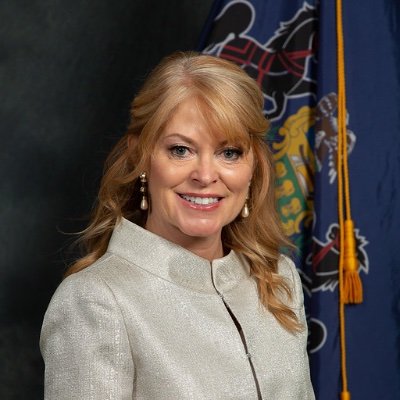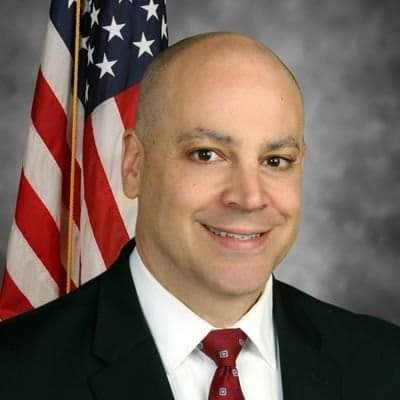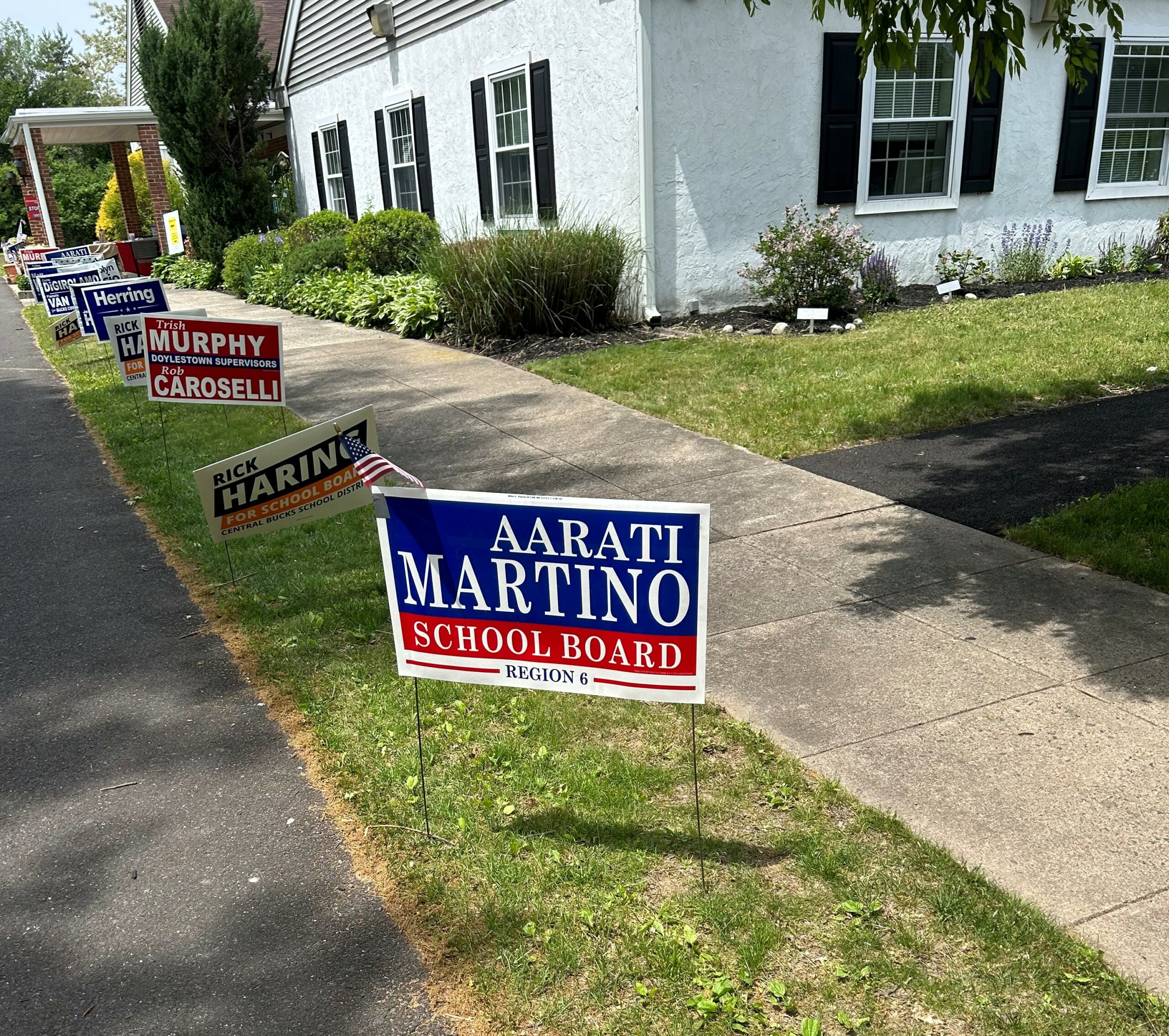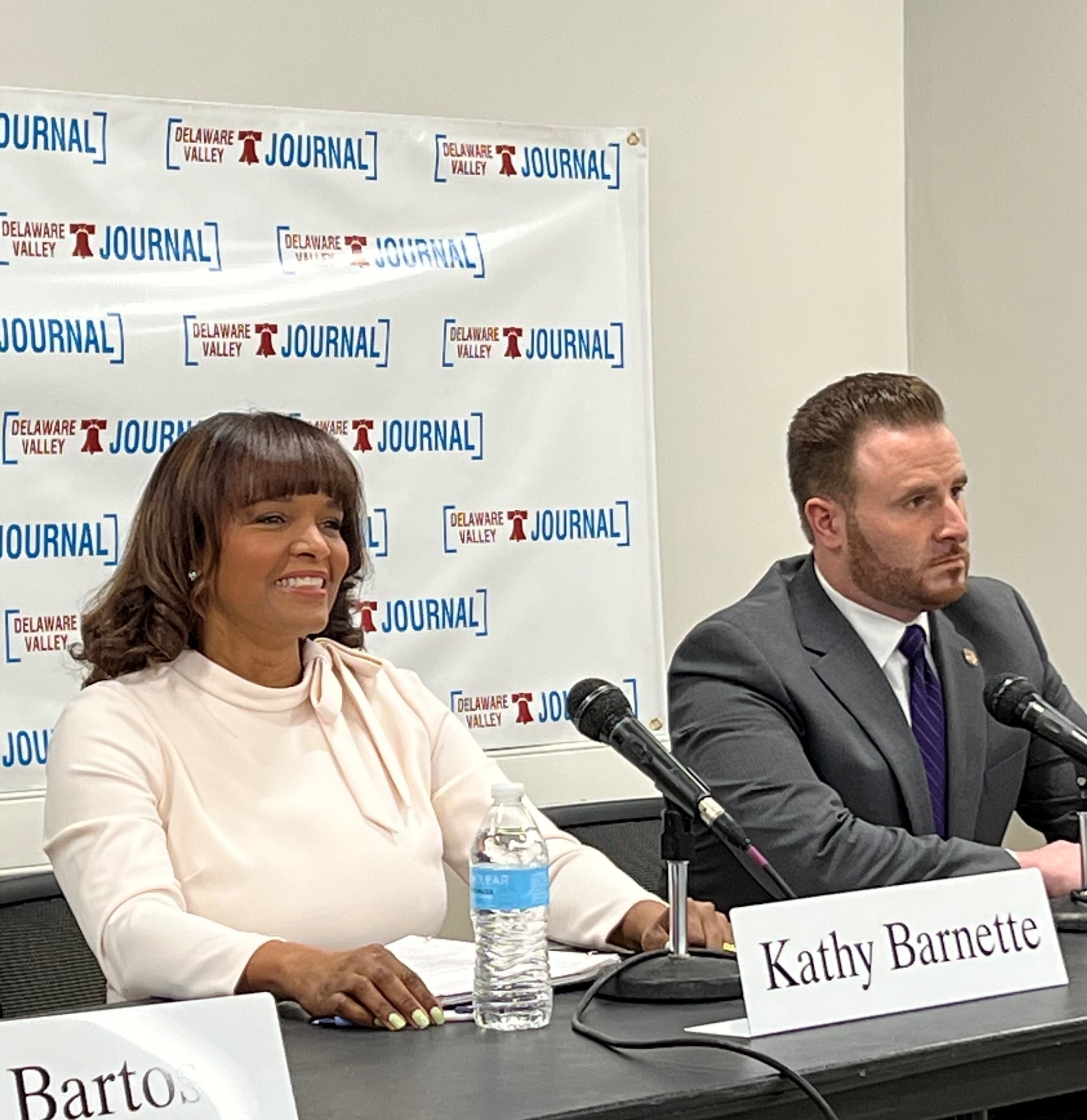Rep. Bizzarro Attacks GOP Treasurer Garrity, Not Dem Opponent, as Primary Approaches

Two Democrats, Rep. Ryan Bizzarro and Erin McClelland, are vying to unseat incumbent Pennsylvania Treasurer Stacy Garrity, a Republican.
Bizzarro is not holding his fire until the general election. He’s directing it at Garrity, not his Democratic opponent.
Bizzarro (D-Erie) is running television ads that claim Garrity is an “election denier” and hit her on abortion—two topics unrelated to overseeing the more than $150 billion in the state’s coffers.
Jim Tkacik, a spokesperson for Garrity, said, “Ryan Bizzarro’s TV spots offer no insight into how Treasury operates because he has no idea. Instead, he has turned the contest for a statewide fiscal office into a revenge fantasy featuring lies about the treasurer’s record. He displays no understanding of fiscal issues and no grasp of the truth on other matters.

Pennsylvania State Treasurer Stacy Garrity (R)
“Rather than run against the real Stacy Garrity, Bizzarro has created an imaginary opponent, making up lies about her as he goes along. Frankly, his conduct has bordered on the misogynistic. Not only is Treasurer Garrity, not an election-denier, she was also among the statewide officials to decry the Jan. 6 violence at the Capitol, posting as the incident was ongoing. She has never claimed that Joe Biden is not the democratically elected president of the United States.”
McClelland told DVJournal that her life experience makes her the better candidate. She works at the Allegheny County Department of Human Services and previously started a business, an orthomolecular recovery program for addiction. McClelland also ran for Congress in the 12th District in western Pennsylvania.
McClelland said the National Association of State Treasurers supports efforts to improve cybersecurity, and she “is the only candidate in this race that has released a plan to address it.”
“I am the only one in the race who has actually made a payroll and worked in the public sector, seeing how government functions and dysfunctions from the frontline. For me, this job is about the work, not the title,” she said. I would stop direct investments in foreign holdings and restore the standards of pension investments that we followed before George Bush deregulated them.”
Calling the treasurer the state’s chief financial officer, McClelland said, “Commenting on the national economy, inflation, interest rates, and job growth should be a significant part of the treasurer’s interactions with the voters. And providing a sound, well-researched, data-driven investment strategy for the people’s money is an essential aspect of the job.”
McClelland holds a B.A. in psychology and an M.S. in industrial and organizational psychology.

Erin McClelland
Elected to the House in 2013, Bizzarro earned a master’s degree in public service. Before running for the legislature, he was a victim/witness coordinator in the Erie County District Attorney’s Office. He chairs the Democratic Policy Committee and spearheaded a legislators’ tour of public schools in 2023 to demand “fair funding.” He is “passionate” about animal cruelty and helped pass a law to ensure animal abusers face increased penalties.
Asked about running against negative ads against Garrity, Bizzarro’s campaign spokesman called her “a threat to our democracy who has a record of working to invalidate the votes of millions of Pennsylvanians.”
He claimed she’s an “anti-women’s rights crusader and the state’s highest-ranking extremist.”
“As someone who has helped negotiate many state budgets and has served in the state legislature, Ryan Bizzarro has more relevant fiscal experience than Stacy Garrity has ever had. He has also authored legislation that, when passed, will return more unclaimed property within his first year in office than Stacy Garrity has achieved during her entire term. He is the only candidate with a realistic plan to modernize the Pennsylvania Treasury,” the spokesman said.
Concerning abortion, Tkacik said, “Treasurer Garrity thinks that the existing bipartisan Pennsylvania legislation dating to 1982 has served as a workable regulation that respects the rights of women while ensuring humane guidelines for all Pennsylvanians. She understands that abortion is a very complex and sensitive issue for millions of Pennsylvanians. Rep. Bizzarro, on the other hand, has voted on both sides of the issue – seemingly based on the political winds. His party is the one that supports permitting abortion up to the moment of birth, which is well outside the mainstream of how most Pennsylvanians view the issue.”
Before being elected state treasurer in 2020, Garrity served in the U.S. Army Reserve and was deployed to Iraq. There, she was in charge of an internment camp for enemy combatants and kept the camp secure for American troops without a single complaint of abuse from the Iraqi soldiers held prisoner. The Iraqis called Garrity “the Angel of the Desert.”
Garrity earned a degree in finance and economics from Bloomsburg University of Pennsylvania and a certificate from the Cornell University Business Management Institute. She was a cost accountant for Global Tungsten & Powders Corp., a worldwide supplier of refractory powders. She worked her way up to become one of its first female vice presidents.
During her tenure s treasurer, Garrity increased the agency’s transparency, allowing taxpayers to see how their money is spent through an online portal; increased unclaimed property returns to its owners, setting a new record of returning $174 million in unclaimed items to 274,000 people; fought waste and brought more accountability to the state pension funds; and has been an advocate for saving for education through PA 529 College and Career Savings Program.
Please follow DVJournal on social media: Twitter@DVJournal or Facebook.com/DelawareValleyJournal
















